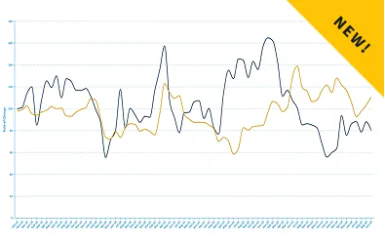TechCrunch: Kibbo Wants To Remake The RV Park So #Vanlife Can Be A Life And Not A Lifestyle
Colin O’Donnell was already rethinking the notion of what makes cities and communities function even before the COVID-19 epidemic swept through the U.S. and revealed some of the cracks in centuries-old structures of urban life. O’Donnell was part of the early wave of urban tech innovation, which began to rise about six years ago.
While the initial optimism for — and interest in — technology’s ability to reshape the built environment has stumbled thanks to both Sidewalk’s data collection overreach in its initial Toronto project and the financial stresses that the COVID-19 epidemic has placed on cities across the country, experiments with how to integrate technology into society more intelligently continue on the margins. And investments in real estate technology continue to rise.
O’Donnell’s new company, Kibbo, takes advantage of both trends. The San Francisco-based startup aims to upgrade the American trailer park, making it a network of intentional communities for the remote-working, previously urban professionals (PUPs?).
To ensure that these remote working puppies (I’m going with it) can navigate the American roadways in the manner to which they’re accustomed, Kibbo pitches exclusive RV parks outfitted with amenities like kitchen supplies and basic staples like coffee and snacks, a gym and recreational facilities for congregating. The company is now taking applications for membership and will be charging $1,000 per month to access its locations of sites near major national parks across the West Coast.
For members who don’t have their own vehicles, Kibbo offers access to top-of-the-line Mercedes Sprinters outfitted with the latest in #vanlife amenities. The vans cost roughly $1,000 per month to rent.
Beginning in the fall, members who get past Kibbo’s virtual velvet rope and gain access to the company’s communities will be able to visit spots in Ojai, Zion, Black Rock Desert and Big Sur. Those locations will be complemented by spots in urban cores in Los Angeles, San Francisco and somewhere in Silicon Valley, according to a statement from O’Donnell.
“With the pressure of months of quarantine fueling the desire for people to get out of their expensive apartments in the city to explore nature and connect with people, we now have the demand and opportunity to rethink how we live, work, have fun and find meaning,” he said. “We get to rethink the urban experience and define what we want cities of the future to really look like.”
It’s also working off of the glamping phenomenon that netted Hipcamp a valuation over $100 million and grabbed Tentrr an $11 million round of financing. Hipcamp offers a database of campsites that earns money by taking a commission from the bookings it facilitates to moe than 300,000 sites across the U.S.
Like Tentrr, Kibbo is using private land to set up sites accessible to membership. But unlike Tentrr, Kibbo owns its own real estate and is setting up its sites to be part of a community rather than just an experience for travelers looking for a different option from a city vacation or competing for campsites at national parks.
Check out the full article from TechCrunch here.
Please Sign in to View
Log in to view member-only content.
If you believe you are receiving this message in error contact us at memberservices@rvia.org.

